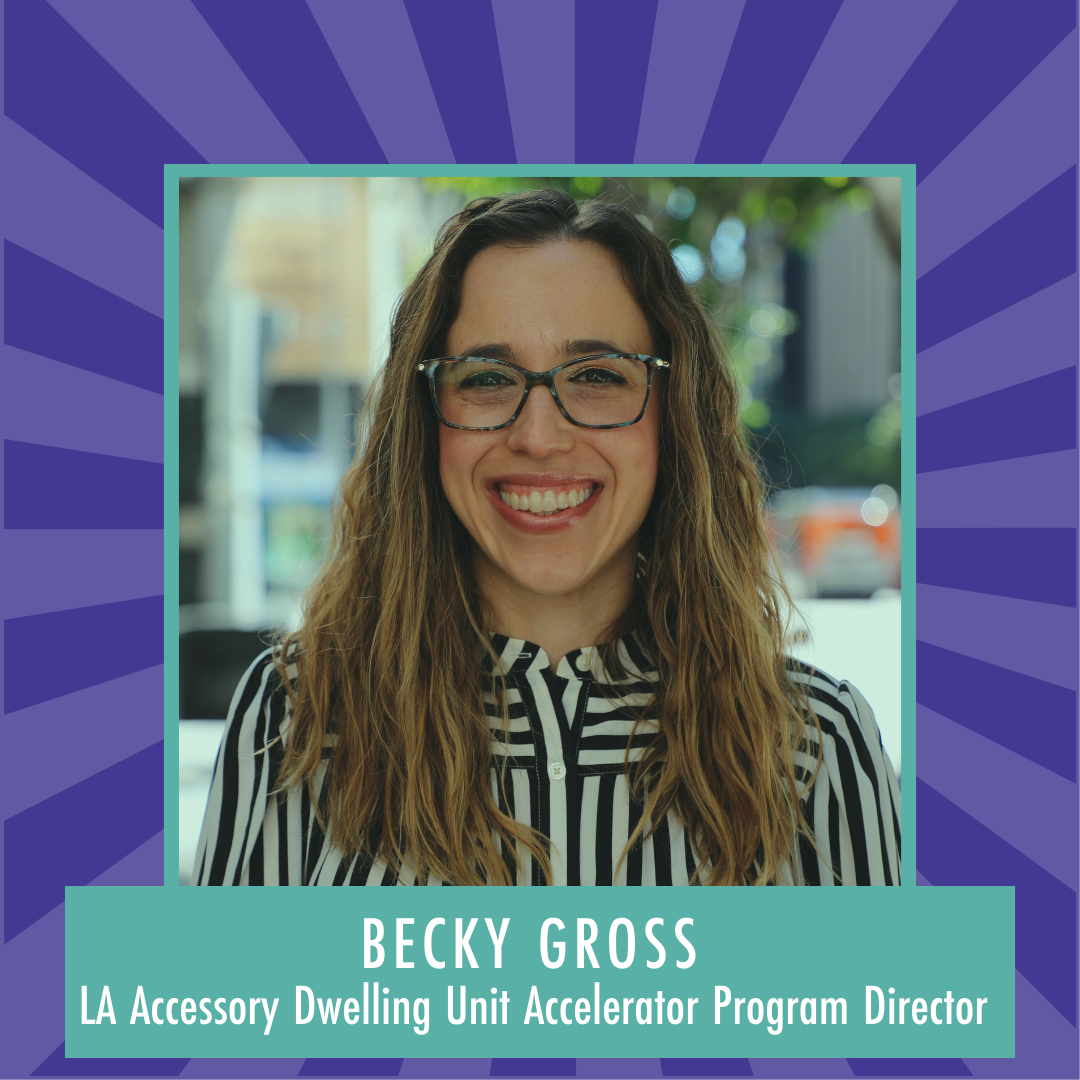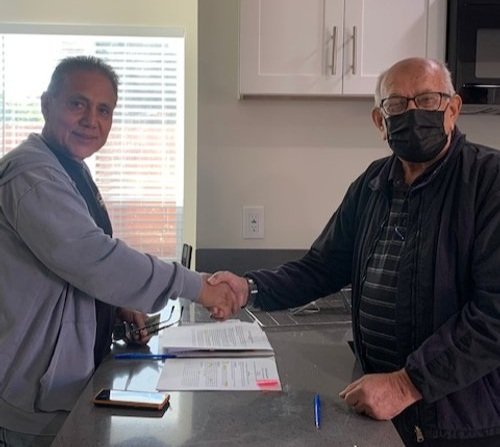Becky Gross is the LA Accessory Dwelling Unit (ADU) Accelerator Program Director at the City of Los Angeles. We spoke to her about LA’s new program that connects low-income older adults who are at risk of being displaced from their neighborhood with homeowners who have ADUs, or backyard homes. She shared how courage and creativity is helping her address the City’s housing crisis and homelessness.
“I am on the Innovation Team in the Mayor’s Office and I run the LA ADU Accelerator Program. The purpose of this program is to provide affordable housing for low-income older adults by partnering with homeowners who have ADUs.
We were awarded a Bloomberg Philanthropies’ Mayors Challenge grant in 2018 to address a pressing issue in our city. At that time, we knew we wanted to do something around homelessness and the housing crisis in LA, but the concept was a little bit nebulous.
When we were designing this program, we saw an increasing trend of homeowners building ADUs in our City. ADUs comprised 22% of all the new housing production, which was staggering. Since this housing typology can be added to a lot with a single-family home, they can increase the housing density without drastically changing the character of the neighborhood. At the same time, data showed that gentrification and rising rents were displacing low-income older adults who were living on a fixed income, resulting in an increasing number falling into homelessness for the first time.
Tenant and homeowner at lease signing
We analyzed these trends and saw an opportunity to create a program that assists older adults who were at risk of becoming homeless. We engaged residents and subject-matter experts to identify older Angelenos' unique challenges, and used these insights to design a program that is holistic and responsive to their needs, while also incentivizing homeowners to partner in this effort. Participating tenants pay 30% of their income in rent, ensuring they do not have to sacrifice other essential items — such as food or medicine — to afford housing. ADUs are an ideal housing type for older adults, as they offer private but non-isolating living spaces and are often near public transit. The goal of this pilot program is to provide immediate interim housing for older adults while they wait for permanent housing placements. By providing housing in ADUs and supportive wraparound services, the program prevents older adults from falling into homelessness.
As is the nature of a pilot program, the ADU program was new for the city. Departments were hesitant to take it on at first because innovation can be risky, and it was counter to their ‘business as usual’ approach. It took time to get buy-in internally to test this concept. But this program was something that I deeply believed in. Hearing from older adults who had to make the choice between paying rent that month or purchasing their prescription and groceries was heartbreaking. It made me feel like our system was broken. I was committed getting creative and pushing boundaries to figure out a housing solution that would serve this community.
When we first were developing this program, I heard ‘no’ frequently. But it just reignited my fire even more. A ‘no’ is just a redirection. It’s not the end of the story. After each ‘no’ I heard, I continued to tweak the program until our partners were supportive of the concept. It made our idea even stronger and more effective than we could have imagined.
Carrying in groceries!
One of the things that inspires me the most about this program is the connection that our homeowners and tenants have made with each other. We started moving our first tenants into their new homes at the height of the pandemic, and we were concerned how people would feel about their health and safety. Luckily, homeowners were welcoming to their new tenants. I've heard from some homeowners and tenants that they consider each other as family. Homeowners have their tenant over for dinner, they have Thanksgiving meals together, and help with small chores like carrying groceries. They’re building a real bond. Those stories inspire me to continue this work and gives me hope that our community is wanting and willing to be part of the solution.
So far, we have placed 32 seniors with homeowners and we’re making the pilot program permanent so we can help more older adults. The program has transitioned over to the City’s Housing Department so it can persist there. We're working on ways to scale it and share out our lessons learned so we can support other jurisdictions who are interested in creating similar programs. I’m excited about this because ADUs are a growing trend, not only here in California but also across the country. I believe that if used effectively, ADUs can be part of the solution to the housing crisis in a myriad of ways.”



